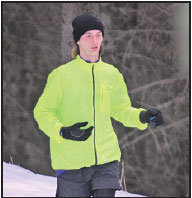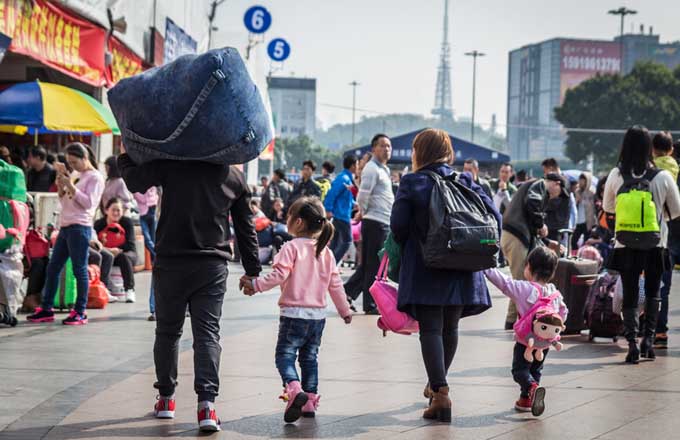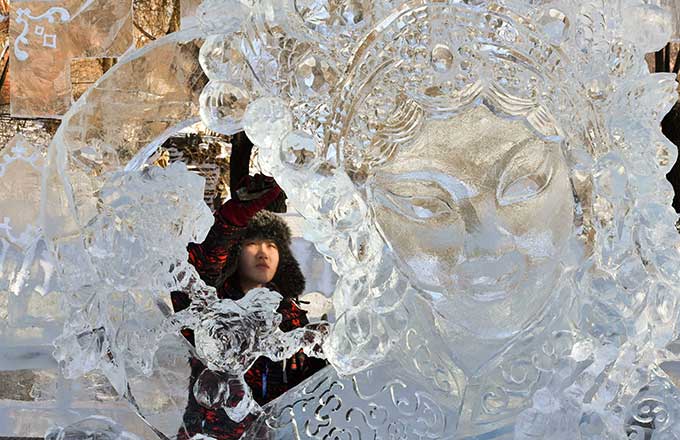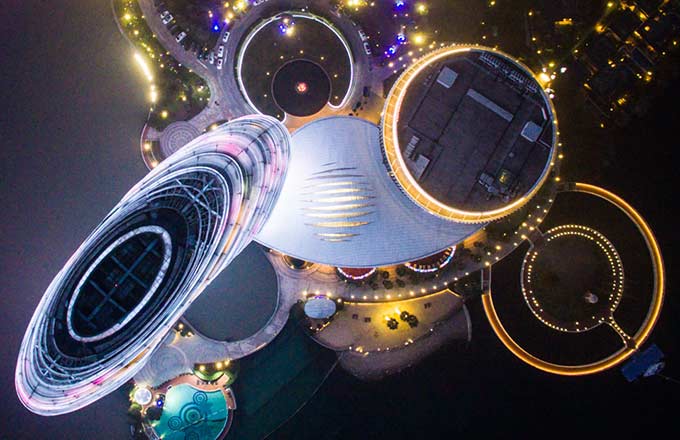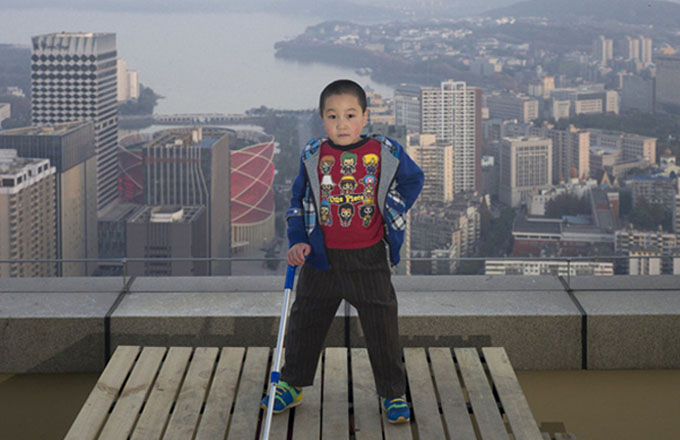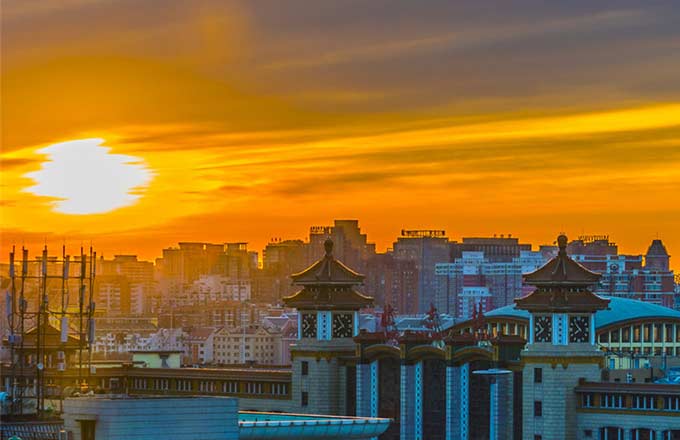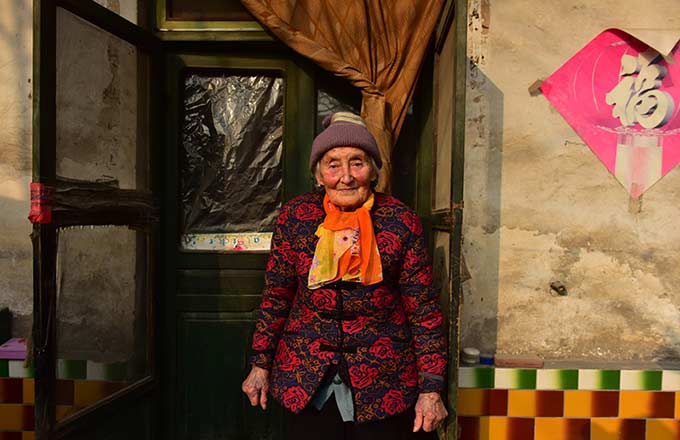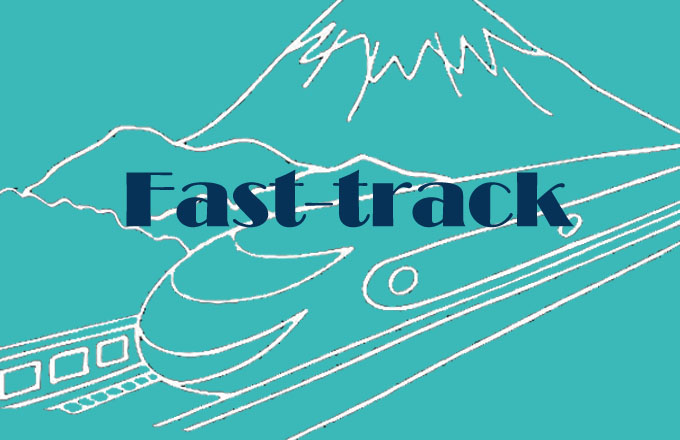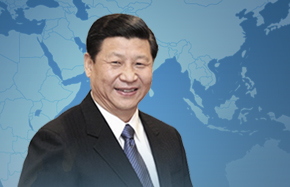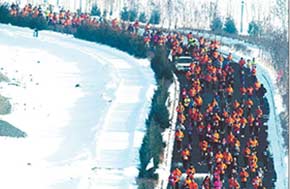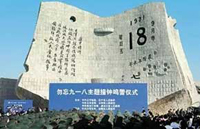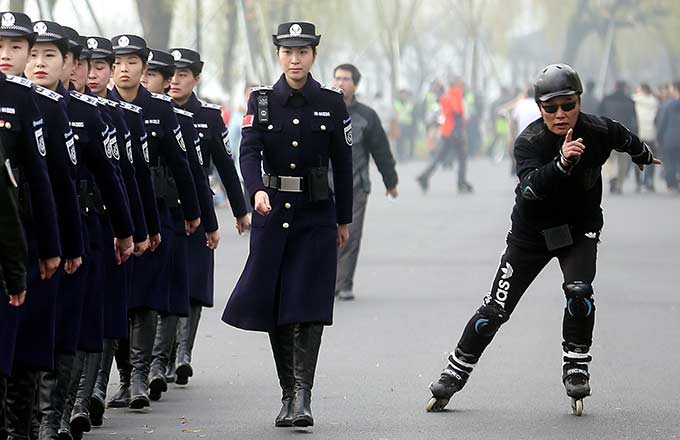My ice and snow marathon experience
It is only once I was cruising at 9,000 meters that I began to feel out of my depth. In a world of nonstop motion, strapping yourself to a chair for the afternoon can force self-critical thought. I began to doubt stuff. Namely, my ability to run 42 kilometers along slick mountainous terrain in subzero temperatures.
I was bound for the 2017 Urumqi Silk Road Ice and Snow Marathon, an event striving to become China's premier winter race. It's the brainchild of Zhou Jianping, an intrepid local marathoner who launched the event on Jan 1 last year. It's certainly a shove-your-head-in-the-ice-bucket approach to New Year's resolutions.
I've run marathons before and prepared diligently, but six months of living in East China - or "inland" as the natives of Xinjiang call it - had lowered my tolerance for the cold. On Dec 31, I was a down-jacketed bundle shivering on and off Urumqi's public transport options, nervous about the race ahead.
I woke to a fresh coat of snow, trees at the side of the street laden with crystals. I walked to the convoy of buses shuttling participants to the Nanshan Mountains through a city enveloped in a thick gray. Fellow runners materialized out of the gloom, identifiable by their bright tangerine fleeces. I overheard a couple questioning which would have more impact: the warmth retained by the overhead clouds, or the added slippage offered by the extra snow. I, too, hadn't the foggiest.
|
Richard Whiddington during the race.Wang Libo / For China Daily |
The fog began to break as we drove on, the distant mountain ridge spilling glorious light onto the plain. Participation has grown from 300 to more than 3,000 runners and intriguingly, given its swelling popularity and support from the local government, the organizers hadn't advertised. According to a 50-year-old returnee, who proudly sported a red 2016 Ice and Snow Marathon fleece, the obscure and adventurous spirit of the race is unique.
The scene at the starting line was jubilant and bizarre. Close to the ribbon, a handful of pro runners stood shivering and expectant. Meters behind, boisterous calisthenics took place to the optimistic chant: "We're warming up, it's not cold."
The course was a narrow loop weaving along the feet of the Nanshan Mountains, a picturesque meeting of sheer rock, frozen streams, and sprightly trees. The field of marathoners, compact at the start, quickly unraveled leaving runners beautifully immersed in a quaint pastoral scene.
As I slowly climbed Tianshan Grand Canyon, I kept pace with a young man who after 10 cold kilometers still had the capacity for speech. He asked me where I was from and said he spent summer vacations hiking the surrounding hills with friends. Wearing three layers of clothes, with hat and gloves to match, it was hard to imagine wandering the fields on a sweltering August afternoon.
The walls of rock narrowed as we climbed and provided some welcome relief from the wind. After gaining 150 meters in altitude, runners turned around at a building resembling the love child of a Swiss chalet and a Kazak palace. At this point, I made a naive and regrettable mistake. But how was I to deny myself the thrill of "mountain-goating" down a path that only moments earlier extracted so much pain?
Never have my legs been more grateful for the feel of terra firma. As the marathon tilted further downhill I passed herders, soldiers, puzzled children, and the enthusiasm of college volunteers. "How do you say jiayou (come on) in English? "Was a recurrent question as I passed. "Fighting! Fighting! Fighting!"
Markers for kilometers 30 and 35 passed in a strange blur. I took hot cups of ginger water at every station, its flavor lingering uncomfortably. In those final stages there was not another runner in sight. Only the clack of my shoes broke the silence. It felt less like a race, more a series of actions carried out purely by the will to finish.
Later, long after I had melodramatically crossed the line into the supportive arms of attendants, after the sumptuous plate of Xinjiang's famous hand-pulled noodles, after I was struggling to walk let alone run, I realized my prosaic in-race thoughts were fitting for a Silk Road marathon. After all, what were the trade routes other than a repeated desire to move stuff from A to B?




